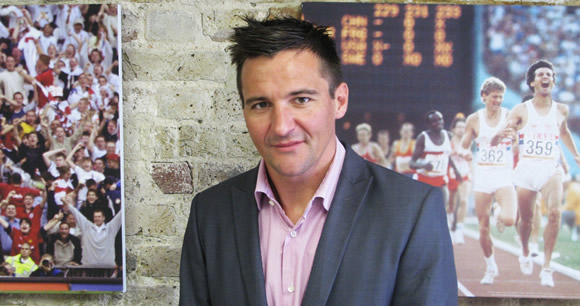Traditional sponsorship is at the heart of twitter’s future – Rupert Pratt
August 11, 2011
Generate Managing Director, Rupert Pratt finally answers the question that has been evading him for the last 2 years and finds the essence of traditional sponsorship at the heart of the answer, but warns against over commercialisation.
Premiership footballers aren’t usually my first reference when it comes to industry insight but it was left to the likes of Ferdinand and Owen to answer a long standing debate. Twitter has increasingly dominated the media and marketing agenda but I struggled to see what these short text broadcasts actually achieved apart from telling me what was at the top of someone’s head?
Twitter was getting lots of coverage for the wrong reasons, over the last 12-18 months stars with short fuses tweeted their anger when they should have counted to ten. Rights holders and sponsors were defenceless and a week couldn’t go by without another tweet shocker. Press officers had woken up to a new world order where there were no restrictions of access to public and media, and no control mechanisms. Even a twitter embargo for European golfers at the Ryder Cup was instantly broken and ignored.
Twitters evolution – meaningful insight
But this is where twitter began to seriously evolve, direct access to the stars delivering meaningful insight. Suddenly fans had behind the scenes access to the most exclusive of areas, what was really going through a players mind during the most critical moments. Michael Owen can’t tweet from the penalty spot but he embraced the medium for the first time in order to tell fans what he really thought about a recent performance. Ferdinand to correct what he thought was a misrepresented interview, skipping the media and going straight to the fans.
What does this mean for ‘old new media?’
Twitter and old media have already forged an alliance. I use the internet while watching sport to check stats and settle sports debates. The Channel 4 show 7 days used new media to allow viewers to directly interact with its participants. The Royal Wedding was another watershed moment. With the worlds eyes fixed on one TV event, the public stars and celebrities shared their thoughts with each other in real time. The Champions League final recorded more tweets per minute than any other event.
So now I see the point, how do we commercialise it?
Attempts to monetize tweets have generally backfired. Paid for endorsements are marked as such and are not well received. A more traditional, subtle form of communication is required and when a certain product does get endorsed (Pippa Middleton and Zara) sales go through the roof.
Sponsorship and new media are made for each other
Advertising is about telling you what advertisers want you to think. Sponsorship is about advertisers paying for an endorsement in return for a favourable response. It is more subtle but no less effective if carried out correctly. The best sponsorships are natural associations, communicated directly to fans without intruding and ideally enhancing a fans consumption of their passion.
What’s the key to success?
Twitter, like most forms of new media and sponsorship are perfect bedfellows. Sponsorship is about engaging fans with content they are passionate about. New media is a platform for large groups to communicate, but new media needs two things;
- – Meaningful content
- – A shared interest for people to do so
Sport and entertainment has these in abundance. The key to success is enhancing people’s consumption of their passion with relevant and meaningful content, easy.
Let us know what you think at http://www.generatesponsorship.com/what-is-the-point-of-twitter/ or follow us on twitter at www.twitter.com/gsponsorship
{jComments on}


